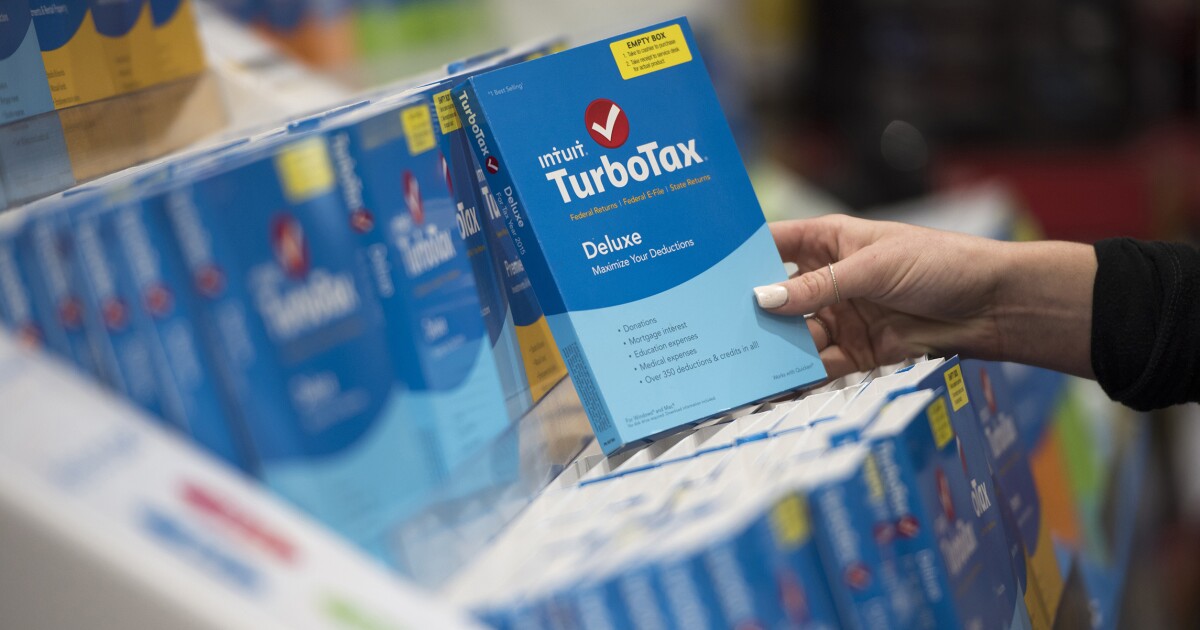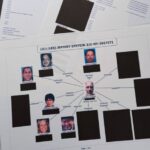

Tax preparers are pushing back against the IRS‘s plan to launch a pilot program for a free agency-run electronic filing system that directly threatens their industry.
The IRS announced the move on Tuesday. The agency said it has built a “functioning internal prototype” of the tax filing tool and intends to launch a pilot program sometime next year. The announcement faced immediate blowback from Republicans about privacy and oversight concerns, and tax preparers are arguing such a move is redundant and costly.
SOCIAL SECURITY UPDATE: HOW DEBT CEILING COULD AFFECT MONTHLY BENEFIT PAYMENTS
Tax preparation giant H&R Block said in a statement that the direct e-file pilot “continues to be a solution in search of a problem.”
“With more than 30 organizations already offering free tax preparation, this pilot is unnecessary and faces significant barriers to providing comprehensive tax preparation services,” the company said. “H&R Block remains committed to helping millions of Americans get the best outcome at tax time.”
Likewise, Intuit, which runs TurboTax, came out swinging against the plan. An Intuit spokesperson said in a statement to the Washington Examiner that the study about a direct file system that accompanied the IRS announcement was “not grounded in reality.”
“Today, 100% of American taxpayers can file their taxes absolutely free of charge — this is free for them and the government. An IRS direct-to-e-file system is redundant and will not be free — not free to build, not free to operate, and not free for taxpayers,” the spokesperson said. “A direct-to-IRS e-file system is a solution in search of a problem, and that solution will unnecessarily cost taxpayers billions of dollars.”
But Dean Baker, co-founder of the left-leaning Center for Economic and Policy Research, told the Washington Examiner there are potentially huge benefits for taxpayers should a direct file system be instituted and that it could save people an “enormous amount of time and stress.”
But he noted that implementation would likely put a lot of tax preparation companies out of business and said arguments from the companies that such a move is redundant or unnecessary come from fears about losing business rather than the well-being of the taxpayer.
“In any case, this is a really big foot in the door for the IRS to move for directly preparing returns, and that would be a huge whack to these companies,” Baker said.
He also pointed out that many European countries have been preparing people’s tax returns for them for decades.
John Buhl, senior communications manager and analyst at the Urban-Brookings Tax Policy Center, said right now, the push is still more of an idea and is in the early stages. He didn’t want to dismiss concerns but said he doesn’t see the concept of direct filing as a problem. Buhl said giving people more options is a good thing.
Buhl told the Washington Examiner that, given their breadth of technical experience, it is important to listen to the concerns and hesitations of tax preparers. He added that advocates need to be careful assuming the IRS can so easily move into this space.
“But at the end of the day, it behooves the government to give people some kind of a free-filing option if it’s easy enough to do, and I think there is certainly the right building blocks in place,” Buhl said. “So I think we should listen to what the concerns are, but I don’t necessarily think that this step that they’re taking is adding some kind of new problem to the landscape.”
Tax preparers will have allies on the Right in this debate. Republicans have already blasted the plan as overreach from an agency that is mistrusted by many and has been the center of several controversies.
Grover Norquist, founder of the powerful low-tax advocacy group Americans for Tax Reform, told the Washington Examiner on Wednesday that handing over so much control of taxes to the IRS raises serious privacy concerns.
“Our friends on the Left have been looking for this for decades; they’ve been pushing this,” he said. “They say, ‘Gee, think how difficult it is for you to do your taxes, all the paperwork you have to find.’ What that means, by the way, is that when the government does your taxes for you, they have to have all that paperwork in front of them. Easy access. So this is the death of any sort of privacy in the United States if you were to do it.”
“It’s always projected as a significant tax increase,” Norquist added. “Imagine if they overbilled you $200 — would you hire a lawyer for $6,000 to get it back?”
CLICK HERE TO READ MORE FROM THE WASHINGTON EXAMINER
Sen. Mike Crapo (R-ID), ranking member of the Finance Committee, said in addition to questions about whether the IRS can even implement such a program without congressional authorization, the move raises conflicts of interest.
“Having the IRS act as tax preparer, tax collector, and tax enforcer raises significant conflicts of interest, would incur billions of dollars in development costs, and would expose exponentially more taxpayer information to misuse or abuse, providing hackers and identity thieves yet another IRS outlet to exploit,” Crapo said in a statement.





